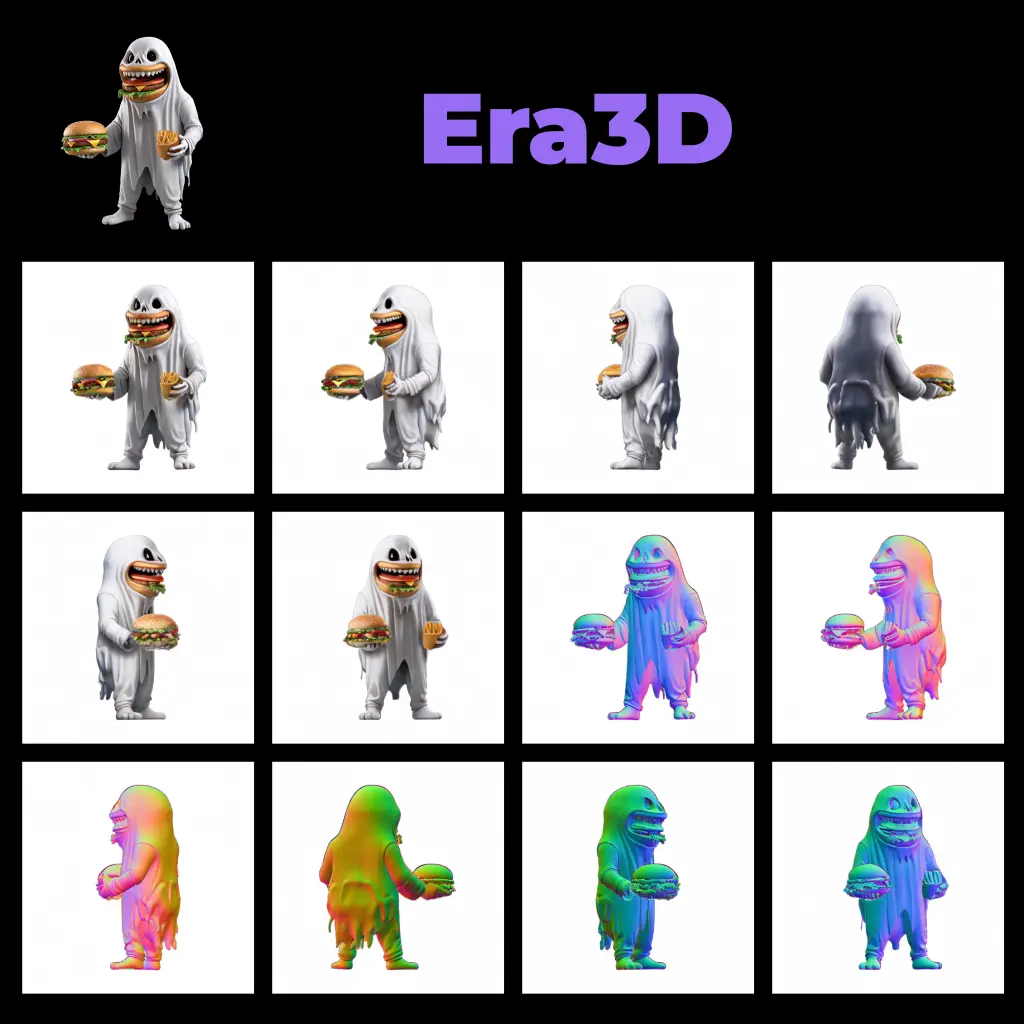ComfyUI Node: LoRA Loader (Tags)
DM_LoRALoaderTags
CategoryDareMerge/lora
54rt1n (Account age: 4335days) Extension
ComfyUI-DareMerge Latest Updated
2025-03-27 Github Stars
0.08K
How to Install ComfyUI-DareMerge
Install this extension via the ComfyUI Manager by searching for ComfyUI-DareMerge- 1. Click the Manager button in the main menu
- 2. Select Custom Nodes Manager button
- 3. Enter ComfyUI-DareMerge in the search bar
Visit ComfyUI Online for ready-to-use ComfyUI environment
- Free trial available
- 16GB VRAM to 80GB VRAM GPU machines
- 400+ preloaded models/nodes
- Freedom to upload custom models/nodes
- 200+ ready-to-run workflows
- 100% private workspace with up to 200GB storage
- Dedicated Support
LoRA Loader (Tags) Description
Load LoRA models, extract tags for AI artists to enhance models with specific attributes/styles.
LoRA Loader (Tags):
The DM_LoRALoaderTags node is designed to load LoRA (Low-Rank Adaptation) models and extract associated tags, which can be useful for AI artists looking to enhance their models with specific attributes or styles. This node allows you to load a LoRA model with specified strengths for both the model and the CLIP (Contrastive Language-Image Pre-Training) component, and it also retrieves and limits the number of tags associated with the LoRA model. By leveraging this node, you can seamlessly integrate LoRA models into your workflow, ensuring that the desired stylistic or functional modifications are applied to your AI models, while also gaining insights from the tags that describe the model's characteristics.
LoRA Loader (Tags) Input Parameters:
model
This parameter represents the base model to which the LoRA modifications will be applied. It is essential for defining the primary structure that will be enhanced by the LoRA model.
clip
This parameter refers to the CLIP component, which is used for contrastive language-image pre-training. It works in conjunction with the model to apply the LoRA modifications effectively.
lora_name
This parameter specifies the name of the LoRA model to be loaded. It is crucial for identifying and locating the correct LoRA model file within the designated directory.
strength_model
This parameter controls the strength of the LoRA modifications applied to the model. It accepts a float value with a default of 1.0, a minimum of -100.0, and a maximum of 100.0, allowing for fine-tuning of the model's adaptation.
strength_clip
This parameter adjusts the strength of the LoRA modifications applied to the CLIP component. Similar to strength_model, it accepts a float value with a default of 1.0, a minimum of -100.0, and a maximum of 100.0, enabling precise control over the CLIP's adaptation.
tag_limit
This optional parameter sets the maximum number of tags to be retrieved from the LoRA model. It defaults to 10, ensuring that only the most relevant tags are extracted and displayed.
LoRA Loader (Tags) Output Parameters:
model
The modified model with the applied LoRA adjustments. This output reflects the enhancements made to the base model based on the specified LoRA model and strength parameters.
clip
The modified CLIP component with the applied LoRA adjustments. This output shows the changes made to the CLIP component, ensuring it aligns with the modifications applied to the model.
tags
A string containing the tags associated with the LoRA model, limited by the tag_limit parameter. These tags provide insights into the characteristics and attributes of the LoRA model, aiding in understanding its impact on the base model.
LoRA Loader (Tags) Usage Tips:
- Ensure that the
lora_nameparameter correctly matches the name of the LoRA model file you intend to use, as this is crucial for successful loading. - Adjust the
strength_modelandstrength_clipparameters to fine-tune the impact of the LoRA modifications on your model and CLIP component, respectively. - Use the
tag_limitparameter to control the number of tags retrieved, which can help in focusing on the most relevant attributes of the LoRA model.
LoRA Loader (Tags) Common Errors and Solutions:
"LoRA model not found"
- Explanation: The specified
lora_namedoes not match any files in the designated directory. - Solution: Verify that the
lora_nameparameter is correct and that the LoRA model file exists in the appropriate directory.
"Invalid strength value"
- Explanation: The
strength_modelorstrength_clipparameter is set to a value outside the allowed range. - Solution: Ensure that the strength parameters are within the range of -100.0 to 100.0.
"Failed to load tags"
- Explanation: There was an issue retrieving or parsing the tags from the LoRA model.
- Solution: Check the integrity of the LoRA model file and ensure it contains valid tag metadata. If the problem persists, try loading a different LoRA model.
LoRA Loader (Tags) Related Nodes
RunComfy is the premier ComfyUI platform, offering ComfyUI online environment and services, along with ComfyUI workflows featuring stunning visuals. RunComfy also provides AI Playground, enabling artists to harness the latest AI tools to create incredible art.


